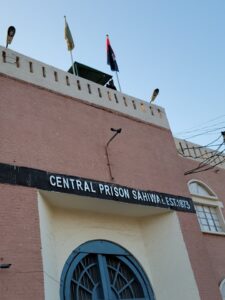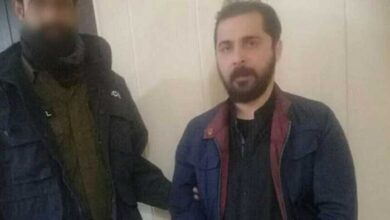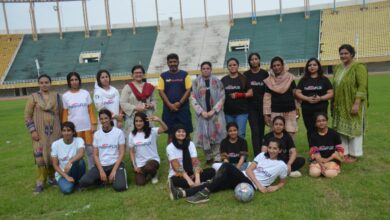Female Prisoners Unwilling To Get Education Despite Facilities At Sahiwal Jail

SAHIWAL: Despite the facilities, the female prisoners of Central Jail Sahiwal are not willing to continue their education, JFHR learnt.
According to data availed through Right to Information commonly known as RTI, the Central Jail of Sahiwal hosts 25 female prisoners and all of them are Muslims.
The jail has a skills development institute run by the Technical Education and Vocational Training Authority (TEVTA) for male and female prisoners to provide them with the opportunity to learn skills and technical education to start a better life.
In addition, the jail management also facilitates prisoners to get formal education from any distance learning university or college.
The jail management has also hired an Alima (religious scholar) to teach the prisoners. Despite these measures and facilities, the female prisoners of Sahiwal Jail are not interested in getting formal education or learning any technical skills to improve their lives.
Data shows that no female prisoner has taken any educational exams since 2020.
Jaffar Rizvi, Deputy Superintendent of the jail, told JFHR that the TEVTA Institute inside the jail offers short courses in beauty, stitching, cooking, embroidery, and other subjects for free. A few female prisoners are taking these courses.

He added that the jail management also facilitates female prisoners who are interested in enrolling in formal education, such as F.A or B.A, from any college or university, but not a single female prisoner is interested in improving her formal education.
Mr. Rizvi emphasized that in addition to educational facilities, the jail administration also provides the basic health facilities to female prisoners, particularly if they are pregnant, and the jail staff is available in case of any emergency.
Data available with JFHR shows that the average age of female prisoners is around 35, and most of them are illiterate. Only one woman has given birth to a child since 2020.
Mr. Rizvi added that the jail also has a day care center for children with female prisoners and has appointed teachers for those children.
According to the World Prison Brief 2021, Pakistan has the 38th largest prison population in the world, with 85670 prisoners, including pre-trial detainees and remand prisoners. Pakistani prisons have seen a significant increase in inmate population from 78,938 in 2000 to 85670 in 2022.
Imran Nabi Gujjar, President of the Sahiwal Bar Council, told JFHR that the district magistrate, along with lawyers and officials from the Social Welfare Department, frequently visit Central Jail Sahiwal to check on the provision of basic facilities for prisoners.
To explain the educational facilities in the jail, Mr. Imran shared a story from his recent visit.
“During our recent visit, the magistrate started talking with a 6-year-old girl living in jail with her mother and getting education in the day care school. The magistrate asked several questions to determine if the children were really equipped with good knowledge or if it was just a pre-planned thing to impress us. It was a pleasant surprise for us that the children were confident enough to answer the questions and could prove themselves in exams too,” Mr. Imran said.
Data shows that 12 out of 25 female prisoners are unmarried and most of them are from rural areas.
“We normally consider female prisoners very innocent and they pretend to be too, but unfortunately, most of them have proper gangs behind them,” Mr. Jaffar added.var /*674867468*/




